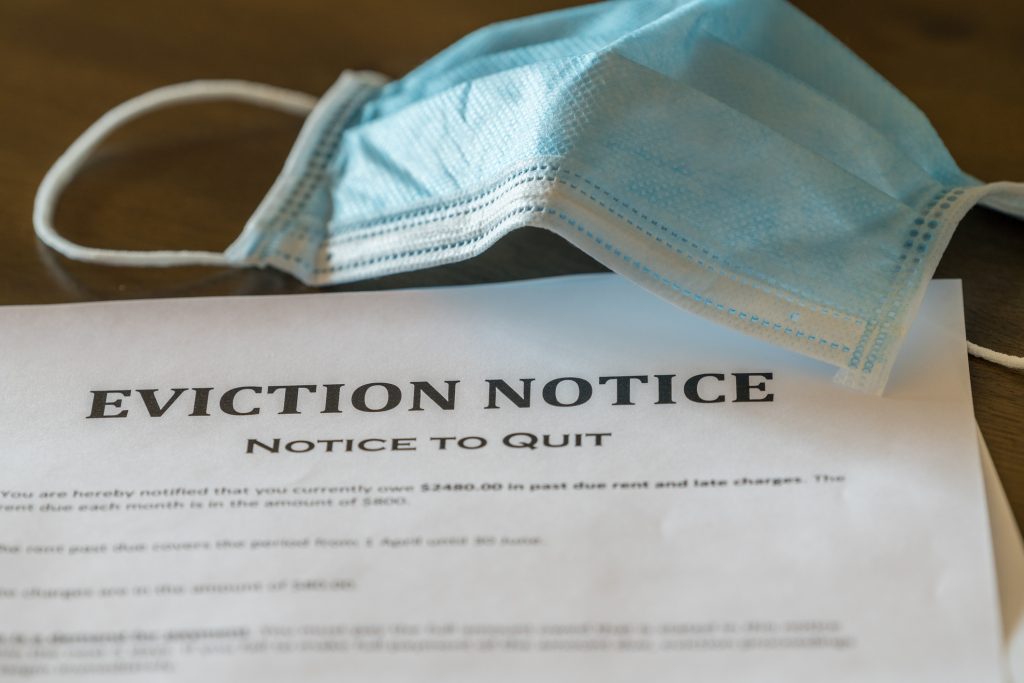[broadstreet zone=”52093″]
FRAMINGHAM – Framingham resident Mary Memmott attended a meeting on Zoom a few weeks ago about the looming eviction crisis locally and especially in Framingham.
The Commonwealth’s pause on evictions expires on October 17, 2020.
In 2020, after the ban on evictions was lifted more than 2,600 evictions cases were filed in the Commonwealth.
Massachusetts Trial Court data showed 743 evictions cases were filed the week of November 30,2020, a new weekly record for the calendar year.
Memmott said the “video report from one renter in particular really affected” her.
“Through help from the Metrowest Workers Center she was able to stand up for her rights and get help when she faced an illegal eviction, but her testimony revealed the barriers facing many tenants,” said Memmott.
So after that Zoom “meeting I found out that Somerville and some other cities have their own eviction moratoria in place (for the duration of public health emergency), and a small group of us collaborated to write a letter to our Mayor and City Council to raise the issue and press for action here in Framingham. I have been gathering signatures to support this letter to make sure the Council recognizes the broad support for action,” Memmott told SOURCE.
That petition now has more than 80 signatures, and Tuesday night, January 5, Memmott will read the petition during public comment of the Framingham City Council meeting.

Since the pause in evictions was lifted in Massachusetts in October, a federal moratorium, established by the Centers for Disease Prevention and Control (CDC) was put into effect in the Commonwealth, but it is set to expire at the end of January 2021.
Memmott wants the Framingham “City Council, the Board of Health, and the Mayor’s Office to recognize that the need for action is urgent.”
“Evictions, especially during the wintertime of this pandemic, are very disruptive to life and health. Ideally, there would be comprehensive legislation at the state and federal level that would protect and support renters and especially the smaller landlords who rely on their income,” said Memmott.
“The patchwork of the CDC eviction moratorium (due to expire in 30 days) and the state’s “eviction diversion” program are just not up to the job during the height of this difficult time. I feel we have to do everything we can to prevent vulnerable families, seniors, and veterans from becoming homeless. Obviously a local moratorium is just a Band-aid, but given the situation I think it’s necessary,” said Memmott.
In Massachusetts, it is illegal for a landlord, on their own, to remove tenants and occupants and their belongings from a rented apartment, room, or home without first getting a court order.
[broadstreet zone=”59984″]
The court case that a landlord files to get a court order is called summary process (the legal term for an eviction).
The court order that allows a landlord to evict a tenant is called an execution.
Even after a landlord gets an execution, only a sheriff or constable can move a tenant and their belongings out of the property.
“Personally, I have a lot of sympathy for the small landlords. As a young child my family always had a landlord who lived next door or downstairs. I remember one up on our roof in a rainstorm fixing a leak (he was a firefighter, so he was pretty good with roofs)! I’m sure they were as dependent on our rent as we were on them,” said Memmott.
“But I also think we are living in an extraordinary time. Every child in Framingham is essentially being educated at home this year — their homes are their classrooms. How in good conscience can we allow families to be evicted while school buildings are closed, thousands are out of work, and Framingham remains in the red zone for COVID-19,” said Memmott.
[broadstreet zone=”59945″]
In Massachusetts, the Trial Court has changed its procedures to provide for a two-tier process that will enable tenants and landlords to access resources and mediate their disputes in order to preserve tenancies.
But that is not enough, according to the petitioners.
“I also worry that in this time of pandemic, there are already a large number of families being displaced, and our shelter providers are overburdened. Many of those in our undocumented and vulnerable populations are likely to find no housing alternatives, and some will be forced into the streets with no safety for their families. This is a potential public health crisis. This crisis is avoidable if we act proactively, instead of waiting for action on the part of the state and federal governments.”
“We have to do better. An eviction moratorium needs to be just one plank of local housing stabilization — looking out for each other — landlords, tenants, and all residents,” concluded Memmott.
[broadstreet zone=”59946″]


